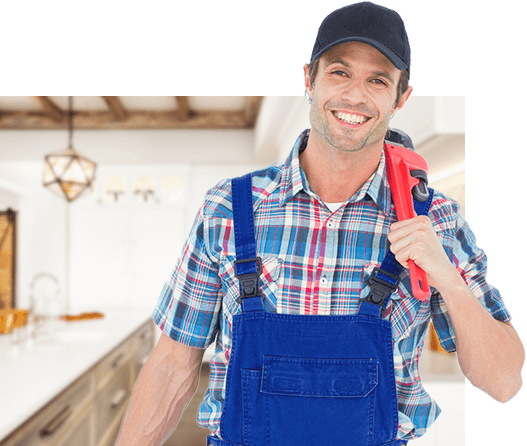Is Your Home at Risk of a Slab Leak?
Do you ever notice damp spots on your floor, hear unexplained sounds of running water, or find an unexpected hike in your water bill? These signs point in one dire direction – a potential slab leak.
As alarming as it sounds, a slab leak is an issue that can sneak upon any homeowner, posing significant threats to your property’s foundation and overall value. In essence, it’s a water leak that occurs in the pipes under the concrete slab of your home. Left unrepaired, it can result in dampness, structural weakening, and an unpleasant moldy environment.
But worry not, identifying a slab leak is not as complicated as it seems. And the good news is, once identified, repairing a slab leak is straightforward with the help of trained professionals. The key lies in early recognition, prompt action, and reliable slab leak repair services.
In the sections that follow, we provide comprehensive insights about slab leak repair. We cover everything from understanding the importance of a slab leak repair and identifying the warning signs, to the repair process and preventive measures. This knowledge empowers you to tackle the issue before it escalates.
So don your learning hats and let’s delve right into the world of slab leaks, together ensuring that our homes stay safe, sound, and leak-free.
What is a Slab Leak Repair and Why is it Crucial?
In any building, foundational integrity is a significant concern. However, the degradation of older infrastructure and improper installations can lead to issues like a slab leak – a term any homeowner dreads to hear. But what exactly is a slab leak repair, and why is it crucial for maintaining your home’s value? This section will provide answers.
Unveiling the Slab Leak Issue
A slab leak is an unforgiving water leak occurring beneath the concrete slab of your home. This leak, if ignored, can contribute to extensive and costly structural damage. Issues like excessive water pressure, unsafe pipe materials, and tree roots affecting pipes are notorious for causing slab leaks.
Role of Corrosion and Abrasion
The effects of corrosion and abrasion on plumbing systems are often underestimated. Over time, these naturally occurring processes can gradually deteriorate the pipe material, contributing to slab leaks. The damage arises from the reaction of the pipe material with elements present in soil and weather conditions, leading to leakages.
Impact of Temperature Variations
Temperature variations too can have a profound impact on pipes. Rapid fluctuations distort materials, leading to increased chances of leaks. This situation reinforces the importance of insulation and maintaining a consistent environment for the plumbing system.
The Importance of Slab Leak Repairs
A slab leak repair is a vital service offered by professionals like James Armstrong Plumbing. It involves detecting and fixing the leak, thus saving the property from potential harm. This service underscores the importance of regular inspections and maintenance checks. The repair process can also involve the transformation of soil chemistry to prevent future issues.
Addressing Consequences of Neglected Leaks
Ignoring a slab leak can result in foundation issues, compromise the aesthetic appeal of the property, and create health hazards. Thus, undertaking timely repairs is key to mitigating these risks and maintaining your property’s overall structural integrity.
In conclusion, understanding slab leaks and taking timely action can save homeowners from potential damages and expensive repairs. Remember, a well-maintained home is a safe home.
Now that we’ve understood what a slab leak is and its importance, let’s go one step further and learn how to identify these lurking threats. Remember, early detection can be your greatest ally in the fight against slab leaks.
How to Identify a Slab Leak
Recognizing the signs of a slab leak is the first step in preventing major damages to your home. Here, we provide a comprehensive guide to look out for warning signs and take proactive steps in the context of slab leak repairs. This knowledge can help you manage the integrity and safety of your home effectively.
Spotting the Early Warning Signs
Being aware of the early warning signs can make a significant difference when dealing with potential slab leaks. Various indications can alert a homeowner about the presence of a slab leak. Let’s discuss some of these signs in detail.
Unusual Spikes in Water Bills
A sudden and unexplained increase in your water bill often hints at leakages within your plumbing system. If your water consumption habits haven’t changed drastically but your bill sees an inexplicable hike, it’s time to check for leaks, including those under the slab.
Sound of Running Water
If you’re frequently hearing the sound of running water when all water outlets are off, it’s quite possible that you’re dealing with a slab leak. This sound, originating from beneath the floor or behind walls, needs immediate attention.
Floor Hotspots
Feeling a warm or humid spot under foot can be a sign of a hot water line leak beneath the slab. These hotspots are harder to ignore and necessitate immediate attention from professionals.
How to Confirm Your Suspicions
Suspecting a slab leak and confirming one are two different phases of the process. Here’s how you can cross-verify your suspicions and validate the requirement of a slab leak repair.
Check the Water Meter
If you suspect a leak, turn off all water-using appliances and fixtures, then check your water meter. A moving meter despite no apparent use of water indicates a potential leak.
Look For Visible Signs
Mold growth, damp carpets, or wet spots on floors and walls are telling signs of a leak. Cracks in walls or flooring can also suggest a serious slab leak causing the foundation to shift.
When to Consult Professionals
If your suspicions are confirmed after these checks, it’s time to consult with a professional plumber. Expert assistance ensures the problem is accurately diagnosed and effectively repaired, preventing further damage.
Now that we’ve acquired the knowledge on identifying a slab leak, let’s steer our attention towards the crucial next stage – the slab leak repair process and the precautions to take during repairs. Knowledge of this process not only helps in understanding what’s going on in case of a repair but also contributes towards a successful repair outcome.
The Process and Precautions Involved with Slab Leak Repair
Once a slab leak is identified, it’s crucial to address it promptly with the help of professionals. Slab leak repair is intricate and requires specialized tools and expertise. This section outlines the process and the necessary precautions.
Before the Repair
Prior to the slab leak repair, a specialist will conduct a thorough leak detection process. Using advanced tools like electronic amplifiers and electromagnetic pipeline locators, they can accurately locate the leak without causing unnecessary damage to your property. This diagnostic step is crucial before any repair is undertaken.
Choosing the Best Repair Method
Once the leak is detected, professionals will evaluate the situation and determine the most suitable repair method. The best approach depends on several factors, including the location and size of the leak, the condition of the pipe, and the specific characteristics of your home.
During the Repair
The repair process involves gaining access to the leaking pipe under the slab, repairing or replacing the damaged section, and testing the repair to ensure the issue has been effectively resolved.
Accessing the Leak
Accessing a pipe beneath a slab is a complex task. Experts typically use jackhammers or other concrete-cutting tools to make a hole in the slab. Protecting the rest of the house from dust and debris during this process is vital.
Repairing the Leak
Once the leak is accessed, plumbers will either repair the damaged section of the pipe using a clamp or replace it entirely. The decision depends on the severity of the damage and the condition of the rest of the pipe.
After the Repair
After the repair, the plumbing system is pressure-tested to ensure no leaks remain. The hole in the slab is then filled, and the concrete floor is repaired.
Restoring the Area
Restoring the affected area after repair is complete is an important part of the process. Any affected flooring, walls, or landscaping will be restored to its original condition as closely as possible.
Precautions to Keep in Mind
While dealing with slab leaks, several precautions must be taken to ensure thorough and safe repairs. Professional assistance is crucial for accurate diagnosis and effective repair, ensuring that further damage is prevented.
After understanding the repair process, let’s shift our focus towards prevention and maintenance. It’s always beneficial to prevent a slab leak from occurring in the first place, or at least to catch it in its early stages. In the next section, we’ll shed light on how you can prevent slab leaks and maintain the health of your home’s plumbing system.
Preventive Measures and Maintenance for Slab Leaks
While dealing with a slab leak is a complex process, there are ways to prevent such issues. Regular inspections and maintenance play an instrumental role in avoiding such disasters. This section outlines some preventive measures and tips for maintaining your home’s plumbing system.
Regular Inspections
Periodic professional inspections of your plumbing system can help detect potential slab leaks early on. Professionals use specialized tools and techniques to check for signs of degradation, corrosion, or weak spots in the pipes.
Water Pressure Control
Properly managing water pressure can prevent possible leaks. Installing a pressure-reducing valve can keep the water pressure at a safe level. Monitoring the water pressure with a pressure gauge can also be beneficial.
Maintenance and Repairs
Even slight damage or minor leaks in your plumbing system should be repaired promptly. Ignoring even small issues increases the risk of major problems like slab leaks in the future. Routine maintenance can ensure that your plumbing system stays in optimal condition.
Careful Landscape Planning
Strategic landscaping can play a significant role in preventing slab leaks. Be careful about where you plant large trees or bushes, as their roots can grow into your pipes and cause leaks or blockages. Seek professional advice on appropriate plants and their placement relative to your home’s plumbing system.
Using Safe Materials
The materials used in your plumbing system should be safe and durable. Avoid lead pipes or potentially unsafe plastics that might release harmful chemicals or break under pressure leading to leaks.
Periodic Pipe Replacement
Replacing old pipes regularly can prevent leaks. Even without immediately visible issues, pipes can become weak and susceptible to leaks over time. Ensure that pipes are replaced before they become problematic.
In conclusion, the best defense against slab leaks is prevention. Regular inspections, proper maintenance, and the use of safe, durable materials can save you from the cost, disruption, and stress of dealing with a major slab leak repair.
Don’t Let a Slab Leak Erode Your Peace of Mind!
It’s clear that slab leaks are more than just minor inconveniences.
They’re silent assailants, gradually causing damage to your home’s foundation and posing serious threats to its structural integrity. More concerning, if left unresolved, they can lead to exponential repair costs and a host of health hazards.
But you don’t have to tackle these menacing leaks alone.
Knowledge, as they say, is power. Understanding the cause, identifying the signs early, and seeking prompt professional assistance can help you tackle a slab leak effectively.
Remember, ignoring a slab leak can lead to repercussions far worse than the initial issue. From damage to the foundation of your home to skyrocketing water bills and the potential presence of mold, the costs of delaying action can be steep. Partnering with professionals can provide a viable pathway to saving your home from these unwanted effects.
Through the information provided in this article, we hope to have empowered you to identify a potential slab leak and seek timely action.
However, if you’re still feeling overwhelmed by the thought of dealing with slab leaks, fear not. At James Armstrong Plumbing, our team of licensed, experienced plumbers are here for you whenever you need us.
We’ll help you detect scary slab leaks, choose the best repair solutions, and provide insights on preventive measures to ensure your home stays leak-free for years to come.
So why wait? Let’s work together to safeguard your home against slab leaks and ensure it remains a safe haven for you and your loved ones.
Get in touch with us today, or simply sign up for our newsletter to stay updated with the latest tips on maintaining your home’s structural integrity.
Because we believe a well-maintained home is a well-loved home.






